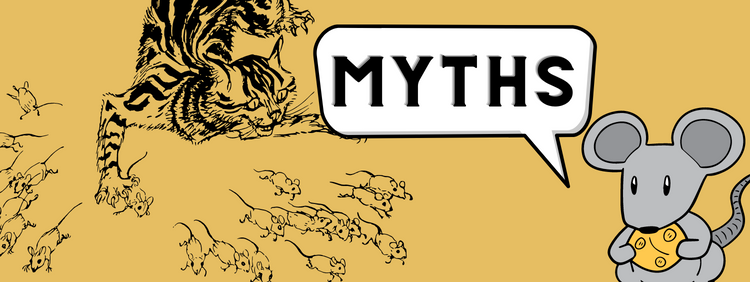 Anyone can need mice removal services, especially during the winter, since critters of all types look for warm places with plenty of food during this time. If you're dealing with a mouse invasion, consider learning more about this species. Doing so can help you identify signs of an infestation and prevent future ones. Of course, there are plenty of myths floating around from popular culture, making it more difficult to find reliable information about mice. In fact, here are four common misconceptions about mice.
Anyone can need mice removal services, especially during the winter, since critters of all types look for warm places with plenty of food during this time. If you're dealing with a mouse invasion, consider learning more about this species. Doing so can help you identify signs of an infestation and prevent future ones. Of course, there are plenty of myths floating around from popular culture, making it more difficult to find reliable information about mice. In fact, here are four common misconceptions about mice.
1. Mice Prefer To Live Alone
Mice living in the wild tend to be solitary and territorial. They may fight over shelter, food and other resources necessary for survival. However, when these things are abundant, mice actually live harmoniously in large communities. Unfortunately, that means they're more communal inside a house. If you find evidence of one mouse, there's likely more hidden inside your walls. Mice are incredibly social and work together for survival:- Caring for young
- Gathering food
- Gathering nesting material
2. Mice Love To Eat Cheese
Many cartoons depict mice eating cheese, but they actually prefer the following:- Seeds
- Fruits
- Grains
3. Cats Will Solve Your Mice Problem
Cats are natural predators, and stray cats often eat birds and rodents. However, getting a cat won't "solve" a mouse problem. While your feline may catch a critter or two, cats can't enter the walls where mice make their homes. In fact, killing a mother mouse when she's away from her pups can cause bigger issues. Expectant mothers are drawn to human residences where they build nests in anticipation of a litter. Once the pups are born, the mice must nurse and care for them, occasionally leaving to gather food for themselves. If the mothers don't return, the pups will starve to death, and you'll have mice bodies rotting in your walls. The best alternative is to call professionals. That way, you don't have to worry about bacteria and insects spreading disease through your home.4. Mice Only Infest Dirty Houses
While keeping your home tidy is beneficial in many ways, even the cleanest homes can experience an infestation. Lack of food, cold weather and destruction of natural habitats can drive mice to seek shelter in houses, clean or not. There are also a few common factors that can attract mice:- Leaving pet food outside
- Piling firewood near your house
- Storing cardboard and paper on the ground

